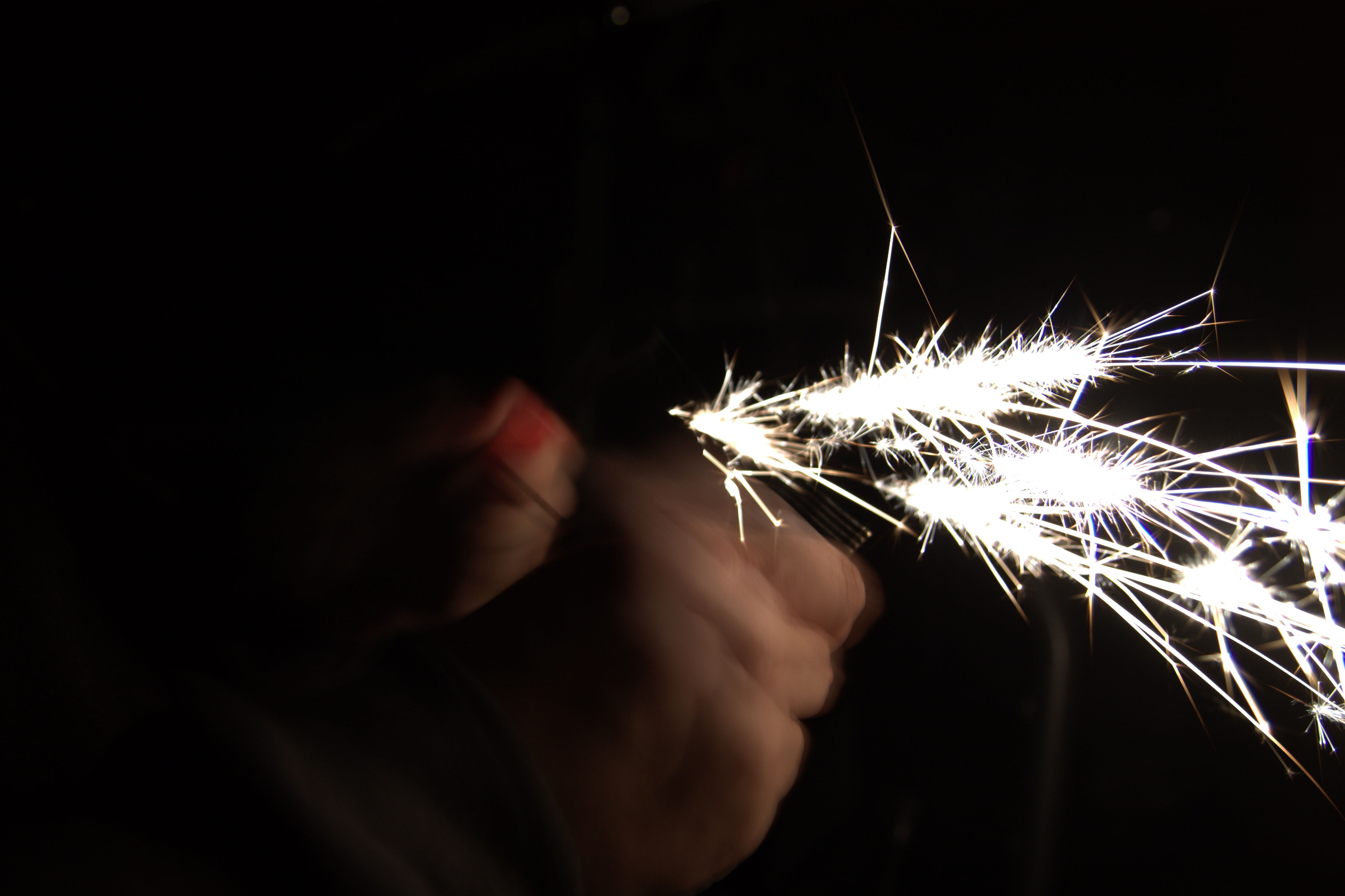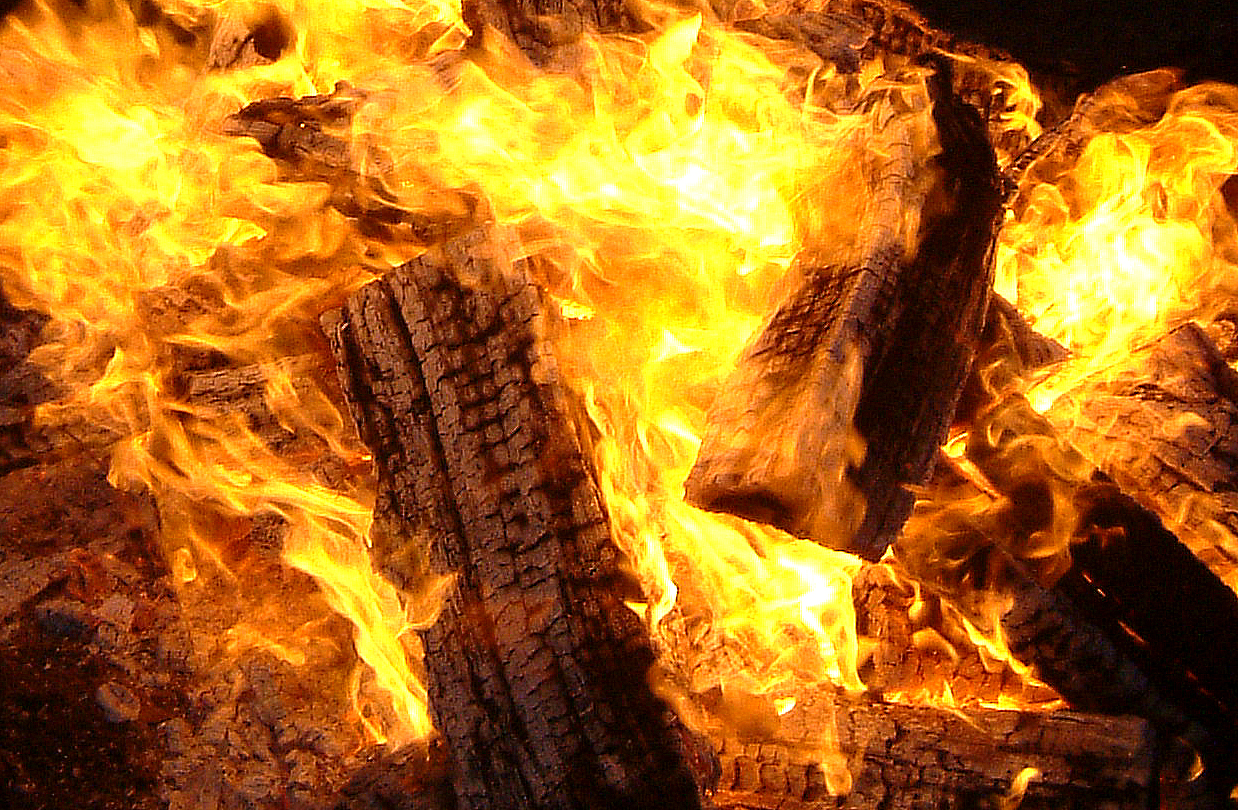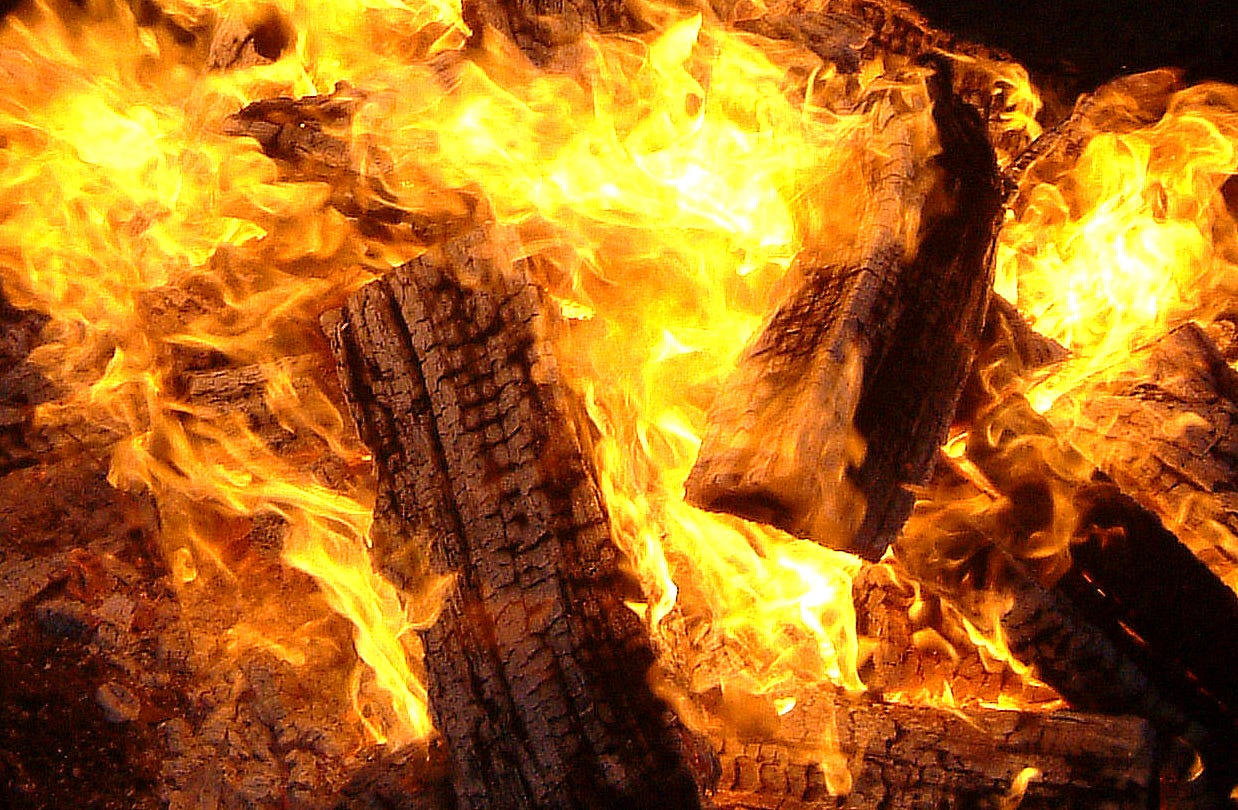It was late January, the snow was over a foot deep. It was cold and windy. The sun was dropping and I had to build a fire to cook dinner and stay warm through the night. All I had on me was a flint and steel. No matches or lighters.

Photo by particlem
Earlier that day I had collected enough wood to keep the fire going through the night, but some of it was damp. I took a dry piece of kindling and carefully whittled some shavings into a pile. Once I had a decent sized pile I grabbed the flint and steel and struck them together to make sparks. I kept praying that one of those sparks would catch the scraps of wood and begin smoldering.
strike, strike, strike…
After what seemed like hours the small scraps started smoldering. A fire was beginning to take shape! I began laying larger pieces of wood next to the embers — watching to make sure they caught fire. I kept grabbing for larger pieces of wood. But it is a delicate balance. T00 large a piece would smother the fire, and I’d have to pull it off and nurse the dwindling flames back to life. When you place a fresh piece of wood onto a fire either it will begin to burn or you will smother the existing flames.
I was an experienced Scout on that trip, and I struggled with the delicate balance of growing the fire. I was overeager. I reached for wood that I wanted to burn and provide me with warmth — skipping over the wood that the fire needed. Eventually the fire began burning bright, and I was able to warm my numb hands.

photo by Thomas Hawk

Looking back all these years later it is clear to me that the people I surround myself with are just like that fire.
A live coal placed next a dead one will either kindle that or be quenched by it.
— Epictetus, Discourses XCIX
Either you become like your friends or they become like you. We’ve all seen it happen to friends, they start taking on the habits and mannerisms of their partners. A lot is at stake. So you should be careful about associating with people who won’t help to better your position in life. And by position I don’t just mean your financial status, I also mean your mental position.
“…you are the average of the five people you associate with most, so do not underestimate the effects of your pessimistic, unambitious, or disorganized friends. If someone isn’t making you stronger, they’re making you weaker.”
— Tim Ferriss
Negative thoughts are contagious. A recent study from Notre Dame found that college roommates spread anxiety and negative emotional states to their roommates. Throughout their first year of living together roommates begin to mirror one another’s actions. They pick up the habits of those they associate with most. This is a classic example of cognitive vulnerability being altered by social environment.
Other research shows how your social networks impact your weight, smoking habits, and happiness. For example, when one partner in a married couple quits smoking the other is 67% less likely to smoke. Happiness on twitter is contagious. It spreads up to three degrees from the original tweeter (source). The people you let into your life have a bigger impact on your happiness than you could imagine.
You probably spend the bulk of your day at work. Outside of your partner, the team you surround yourself with will have the biggest impact on your life. Do they make you better? Do they push you to take risks and grow as a person? Do you look forward to going into work every day?
If they don’t, why are you still there? If the people you surround yourself with aren’t helping you to grow, they’re holding you back. Pull off any log that smothers your fire. The longer you wait the harder it will be to reignite the flame.